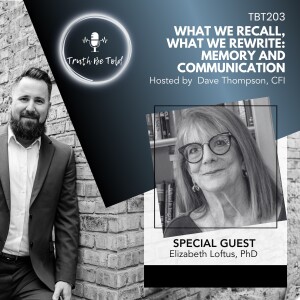
Wednesday Feb 05, 2025
What We Recall, What We Rewrite: Memory and Communication with Elizabeth Loftus, PhdD
In this conversation, Dr. Elizabeth Loftus, a pioneer in memory research, discusses the complexities of memory accuracy, particularly in the context of eyewitness testimony and its implications for wrongful convictions. The conversation explores how various factors, including questioning techniques and social influences, can distort memories, leading to significant consequences in legal settings. Loftus shares insights from her foundational research on eyewitness memory, emphasizing the importance of understanding memory fallibility in both personal and legal contexts. In this conversation, Elizabeth Loftus discusses the complexities of memory, including the factors that influence memory accuracy, the controversies surrounding memory retrieval, and the implications of false memories in therapeutic settings. She emphasizes the malleability of memories, the importance of context in recall, and the ethical considerations of memory modification. Loftus also shares personal insights on how her research impacts her daily life and offers advice for both researchers and laypeople regarding memory awareness.
Truths:
|
· Memory accuracy is influenced by many factors, including emotions and questioning. · Eyewitness misidentification is a significant cause of wrongful convictions. · People often believe their memories are accurate, even when they are not. · Leading questions can alter a witness's memory of an event. · Witnesses can contaminate each other's memories through discussion. · Social media can spread misinformation that affects memory recall. · The wording of questions can significantly impact the responses given by witnesses. · Expert testimony focuses on the reliability of memory, not the outcome of cases. · Memory can change over time, especially with repeated questioning. · Understanding memory fallibility is crucial in legal and personal contexts. Memory accuracy is influenced by various factors at different stages. · Controversies exist around memory retrieval methods and their implications. · Contextual cues can aid in memory recall but are not always reliable. · Flashbulb memories, while vivid, can change over time. · Questioning someone's memory can lead to discomfort and defensiveness. · Therapeutic practices can unintentionally create false memories. · Memory modification raises ethical questions about its application. · People often distort their own memories for self-enhancement. · False memories can appear detailed and emotional, complicating their validation. · It's important to approach memory discrepancies with understanding, not suspicion.
|
No comments yet. Be the first to say something!